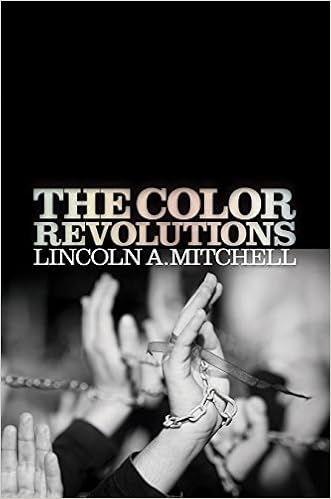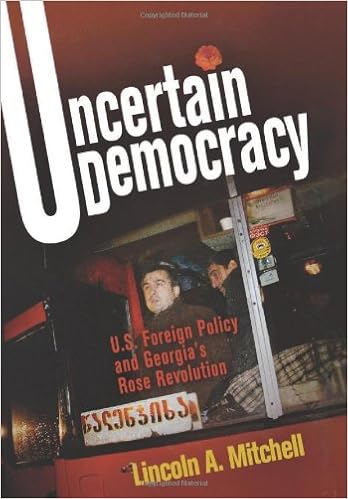 From late 2003 through mid-2005, a series of peaceful street protests toppled corrupt and undemocratic regimes in Georgia, Ukraine, and Kyrgyzstan and ushered in the election of new presidents in all three nations 다운로드. These movements—collectively known as the Color Revolutions—were greeted in the West as democratic breakthroughs that might thoroughly reshape the political terrain of the former Soviet Union 다운로드.
From late 2003 through mid-2005, a series of peaceful street protests toppled corrupt and undemocratic regimes in Georgia, Ukraine, and Kyrgyzstan and ushered in the election of new presidents in all three nations 다운로드. These movements—collectively known as the Color Revolutions—were greeted in the West as democratic breakthroughs that might thoroughly reshape the political terrain of the former Soviet Union 다운로드.
But as Lincoln A. Mitchell explains in The Color Revolutions, it has since become clear that these protests were as much reflections of continuity as they were moments of radical change 다운로드. Not only did these movements do little to spur democratic change in other post-Soviet states, but their impact on Georgia, Ukraine, and Kyrgyzstan themselves was quite different from what was initially expected 다운로드. In fact, Mitchell suggests, the Color Revolutions are best understood as phases in each nation’s long post-Communist transition: significant events, to be sure, but far short of true revolutions 아이작 애프터버스 다운로드.
The Color Revolutions explores the causes and consequences of all three Color Revolutions—the Rose Revolution in Georgia, the Orange Revolution in Ukraine, and the Tulip Revolution in Kyrgyzstan—identifying both common themes and national variations 윈도우10 rs5 iso 다운로드. Mitchell’s analysis also addresses the role of American democracy promotion programs, the responses of nondemocratic regimes to the Color Revolutions, the impact of these events on U.S.-Russian relations, and the failed “revolutions” in Azerbaijan and Belarus in 2005 and 2006 코렐드로우 x5 한글판 다운로드.
At a time when the Arab Spring has raised hopes for democratic development in the Middle East, Mitchell’s account of the Color Revolutions serves as a valuable reminder of the dangers of confusing dramatic moments with lasting democratic breakthroughs 리눅스 tcpdump.
Mitchell, L. A. (2012). The Color Revolutions. University of Pennsylvania press.
See on books.google.com; Book Summary (Maia Otarashvili, Foreign Policy Research Institute)

 In November of 2003, a stolen election in the former Soviet republic of Georgia led to protests and the eventual resignation of President Eduard Shevardnadze
In November of 2003, a stolen election in the former Soviet republic of Georgia led to protests and the eventual resignation of President Eduard Shevardnadze  “The present book is the result of a visit which I made to Georgia in August 1920
“The present book is the result of a visit which I made to Georgia in August 1920  “Orientalism and Empire” sheds new light on the little-studied Russian empire in the Caucasus by exploring the tension between national and imperial identities on the Russian frontier
“Orientalism and Empire” sheds new light on the little-studied Russian empire in the Caucasus by exploring the tension between national and imperial identities on the Russian frontier  “The author discusses the experience of Georgia following the collapse of the Soviet Union in a broad analytical and empirical framework
“The author discusses the experience of Georgia following the collapse of the Soviet Union in a broad analytical and empirical framework